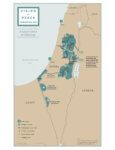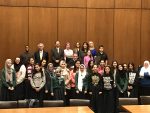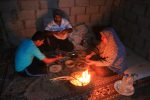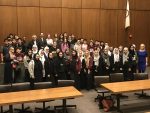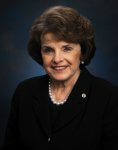Tunisia Quartet commit to partnership with EU
The representatives of Tunisian civil society, winners of the Nobel Peace Prize, reminded of their commitment to close cooperation with civil society in the European Union’s countries
Five years after the Jasmin Revolution that toppled an authoritarian regime and its President, the representatives of the “Tunisian quartet” presented their analysis of the country’s current situation to the plenary session of the European Economic and Social Committee (EESC). Tunisia stands out from a number of aspects: A unique governance model based on the vibrant forces of civil society, an example of peace in a region torn apart by violence and civil war, an economic challenge in terms of employment for a country overwhelmingly made up of young people.
Opening the debate, EESC president, Georges Dassis, said: “We, the representatives of European civil society, not only want to pay tribute today to your success in a region that is going through difficult times, but also take inspiration for our work from your achievements and support you in your ongoing and future activities, as we must support all civil society actors in other countries of the region, committed to the establishment of pluralist and participatory democratic systems.”

Slim Ghorbel, Member of the Executive Board of the Tunisian Union of Industry, Commerce and Crafts (UTICA), pointed out that “the model of partnership between Tunisia and Europe is unique in its kind because it addresses economic, social and cultural cooperation. It must be preserved and strengthened and it must be built on the civil society that forms its base. Together we can combat ideologies and bring lasting peace to both sides of the Mediterranean.”
Ahmed ben Tahar Galai, Vice-president of the Tunisian League of Human Rights (LTDH), underlined the crucial importance of safeguarding human rights, especially in times of a security crisis: “The Arab Spring gave birth to a democratic transition that we owe to ourselves to take forward and bring to a successful conclusion. This means that we have to honour all our commitments to human rights, in the context of the tension and terrorism that we are currently experiencing. The EESC was quick to share the joy of the Jasmin revolution, and it can help us now to define a development model for Tunisia in line with EU’s.”
Kacem Afaya, Deputy Secretary General of the General Union of Tunisian Workers (UGTT) finally referred to “the responsibility that the Quartet must shoulder after winning the Nobel prize, but also to the responsibility for introducing social justice and combating poverty that has weighed on Tunisian governance as a whole since 2011. This is a new era in which engaging in politics is not for achieving or holding on to power, but for establishing freedom and democracy. I believe that civil society is able to do that in harmony with all its constituent parts.”
During the debate, EESC members thanked and congratulated the Quartet representatives for their efforts, and many of them commented that Europe and its civil society should draw on Tunisia’s very active civil society, particularly for combating populist tendencies.
The creation of a consultative body in Tunisia that would gather the various civil society actors was welcomed by President Dassis. He assured the Quartet representatives of EESC’s support in that matter and underlined that it is important for this consultative body to represent the entire Tunisian organised civil society, notably its economic and social forces.
Copyright European Union, 1995-2016: SOURCE Economic and Social Council of the United Nations


- Israelisnipers shooting and killing hospital workers in Gaza - December 11, 2023
- CAIR Condemns Israeli Executions of Wounded, Unarmed Palestinian in West Bank - December 11, 2023
- Arab and Muslim American voters face a “simple choice” between Biden’s inhumanity and Trump’s edgy politics - December 9, 2023













